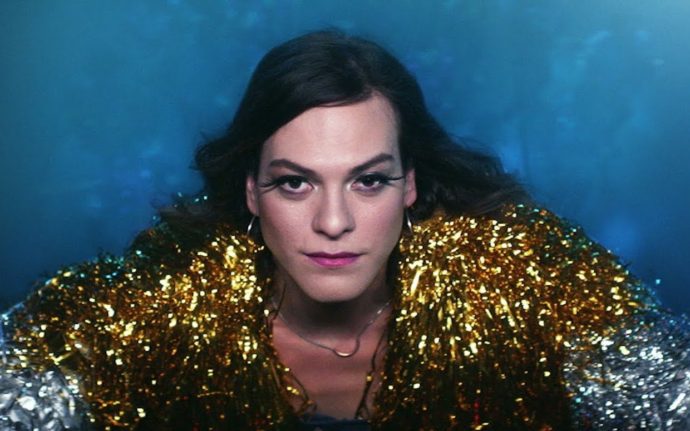Recently winning the Oscar for Best Foreign Language Film last month, Sebastian Lelio’s A Fantastic Woman has garnered strong interest not just for its many accolades but for its leading actress Daniela Vega. Not just because of her performance in the film itself, but because of her significance as being one of the rare transgender actors to actually play a trans character, unlike the usual cis actor dressing up as the opposite sex. And despite it being only her second film, Vega absolutely kills it, delivering a multi-layered and emotionally compelling performance, in an albeit standard cinematic feature.
Detailing the death of a trans woman named Marina Vidal’s boyfriend Orlando, and the impact it has on herself, Orlando’s family, and how the two relate to one another, the most important element as to why the film is successful is with Daniela Vega as Marina. Vega appears in almost every scene of the film, requiring her to have strong screen presence, a task Vega greatly excels at. She offers mystery and nuance, while also giving a very sympathetic side to her character, especially considering all of the horrible things done to her throughout the film by Orlando’s family. It’s a simply electrifying performance, and while there are other solid actors within the ensemble, in particular Francisco Reyes as Orlando, Vega is the true star, and as Marina Vidal creates a captivating and powerful performance. To say nothing of how gorgeous the film is shot
But while Vega absolutely amazes, the rest of the film feels more hit and miss. Much of the dialouge and the transphobia Marina goes through can seem authentic and real, while other times felt unrealistic, mainly the sequences featuring Orlando’s suriviving family. Although considering I’m cis, perhaps I can’t really say if the horrible actions done against Vidal are truly authentic or not. Outside of that, the story is enjoyable, but never quite as compelling or as thoughtful as one would expect, and there are many moments where director Sebastian Lelio feels as if he needs to crowbar in obvious visual metaphors that feel out of place, and while it is understandable why Lelio implements these ideas, it does feel awkwardly jammed into the project, and does damage much of the pacing.
A Fantastic Woman is still a genuinely enjoyable film, but much of it largely relies, once again, on the powerhouse acting of Daniela Vega. Without her, the film itself would have probably been a fine, if at times unengaging, feature. But thanks to her, it does elevate the project into something worthwhile, and it is very understandable why the Academy were so receptive towards the film.
